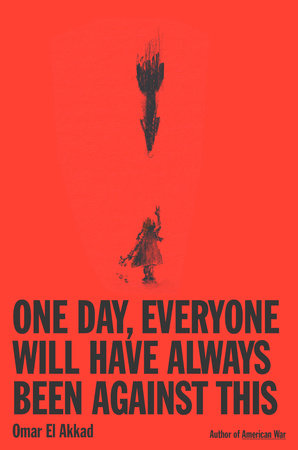More on this book
Community
Kindle Notes & Highlights
Read between
April 16 - April 20, 2025
I fear, for example, large flags of the Western world, in almost any context. When I see them hanging off the backs of pickup trucks anywhere in the United States, I have an instinctual negative reaction.
But much like the fear that arrives, invariably, whenever I have to pass through a border crossing, it isn’t the rationality or evidence of the fear that matters, but rather its purchasing power.
My fear buys nothing. I expect it to buy nothing. In this case, I want it to buy nothing—who cares how I feel about flags? And yet, I know other people’s fear—as irrational as mine, more irrational than mine—buys everything. It moves armies, obliterates thousands. As with rage, there is an invisible force to fear, a gravity. I can no more push my fear upward into another echelon of privilege than those above me can help but let theirs fall, with terrible force, onto the lives of those below.
We don’t like to talk about these things. We prefer our monsters materialized, not made.
I don’t love this country, don’t love any country, patriotism being the property of an entirely different kind of life than luck has given me; I live here because it will always be safer to live on the launching side of the missiles. I live here because I am afraid.
Often, I watch discussions on social media in which someone asks: What radicalized you? In response, others will point to various moments of mass violence at the hands of the state, blatant cases of injustice, moments such as this one where it becomes clear there exists a massive gap between the empty statements of the powerful in support of justice and the application of actual justice. But the word “radicalize” feels wrong, seems to imply an element of extremism, as though rage at this kind of blatant hypocrisy is the abnormal thing, when what is plainly abnormal is to accept it.
(More than thirty-five U.S. states have passed laws either restricting the ability to boycott goods related to Israel or making it illegal for companies and individuals who do to work for or with the state.)
the rallying cry issued by the Palestinian poet Rasha Abdulhadi: “Wherever you are, whatever sand you can throw on the gears of genocide, do it now. If it’s a handful, throw it. If it’s a fingernail full, scrape it out and throw. Get in the way however you can.”
And finally, it will take the form of a quiet unheard reckoning in the winter of life between the one who said nothing, did nothing, and their own soul. And there will be no words exchanged then, only a knowing.
A world that shrugs at one kind of slaughter has developed a terrible immunity.
The purpose of this kind of accusation is never moral concern. To be accused of speaking too loudly about one injustice but not others by someone who doesn’t care about any of them is to be told, simply, to keep quiet.
Killings that might have once made front-page news slowly submit to the law of diminishing returns—what is left to say but more dead, more dead?
News is new, and whatever this is, it can no longer be called new. Maybe this is the truly weightless time, after the front page loses interest but before the history books arrive.
When the time comes to assign blame, most of those to blame will be long gone. There will always be feigned shock at how bad things really were, how we couldn’t have possibly known.
One day there will be no more looking away. Looking away from climate disaster, from the last rabid takings of extractive capitalism, from the killing of the newly stateless. One day it will become impossible to accept the assurances of the same moderates who say with great conviction: Yes the air has turned sour and yes the storms have grown beyond categorization and yes the fires and the floods have made of life a wild careen from one disaster to the next and yes millions die from the heat alone and entire species are swept into extinction daily and the colonized are driven from their land
...more
Far enough gone, the systemic murder of a people will become safe enough to fit on a lawn sign. There’s always room on a liberal’s lawn.
It is not so hard to believe, even during the worst of things, that courage is the more potent contagion.


